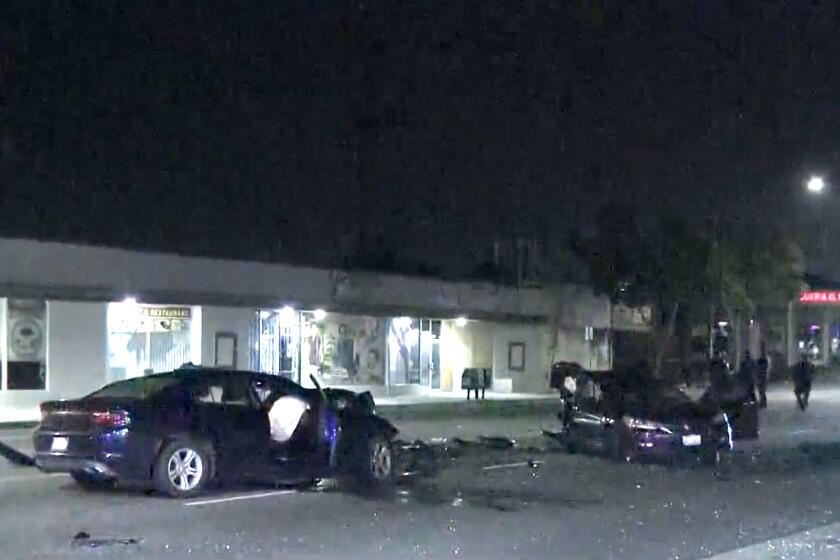A woman became the latest victim of illegal street racers in Los Angeles after she was struck down in a roadway Saturday by one of two speeding drivers, L.A. police said.
The fatal hit-and-run is one in a long string of injuries and deaths related to street racing and street takeovers in Los Angeles.
The incident happened Saturday around 10 p.m. during a race between a gray Dodge Charger and a dark-colored Chevrolet Tahoe, both traveling south on Normandy Avenue at 66th Street, according to the Los Angeles Police Department.
The victim was walking outside of an unmarked crosswalk on Normandy and was struck by the Dodge.
The driver failed to stop and render aid after striking the victim and fled the scene. The woman was pronounced dead at a local hospital.
Police are asking for help from witnesses or those who have tips that could help in identifying those involved in the alleged street race. Those with information can call (213) 458-3471 during business hours. For anonymous tips, call (800) 222-8477 or visit the LACrimeStoppers website.
Street racing and street takeovers — when participants commandeer bridges or intersections and perform dangerous car stunts in front of a crowd — hit a peak in 2020 with 912 reported incidents in Los Angeles. In 2019, there were 319 incidents, and in 2023, there were 482, police said at a public hearing last February.

In April 2023, a woman was killed in a street-racing crash in Pomona, police said, one among numerous deaths and injuries related to street racing and street takeovers in L.A. (KTLA-TV)
Street racing and takeovers have a long and deadly local history. Southern California has long been an epicenter of high-speed car culture.
A Los Angeles Times analysis conducted in 2018 of coroner’s records, police reports and media accounts from 2000 to 2017 found that at least 179 people had died in Los Angeles County during that period as a result of suspected street racing.
Sign up for Essential California for news, features and recommendations from the L.A. Times and beyond in your inbox six days a week.
This story originally appeared in Los Angeles Times.

